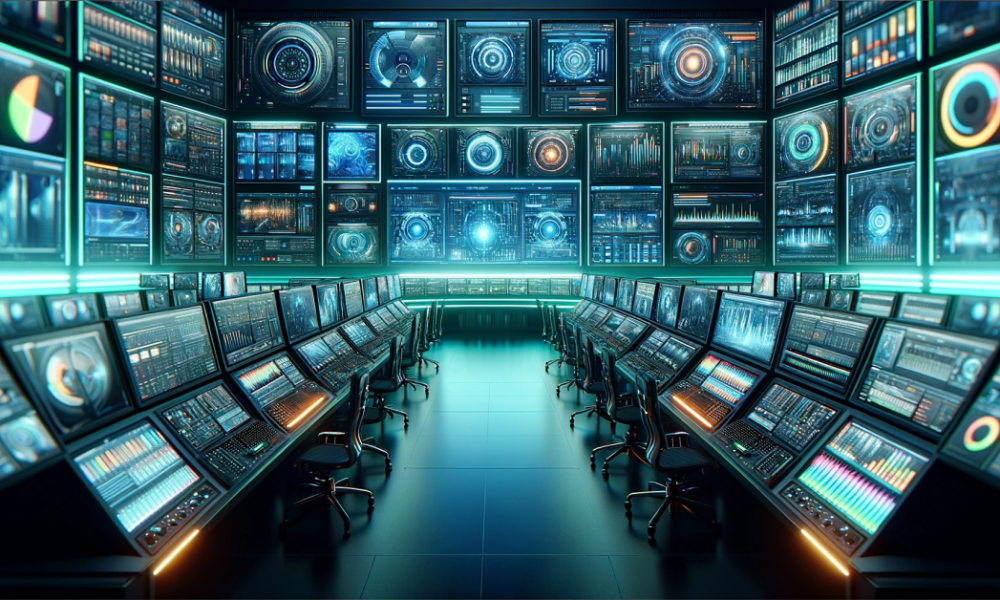Artificial intelligence (AI) has significantly impacted various industries, and one of the most exciting applications of this technology is the development of text-to-video AI generators. These tools allow users to create high-quality videos simply by providing textual descriptions, revolutionizing content creation across fields such as marketing, education, entertainment, and more. By converting written input into dynamic video content, text to video ai generator are making the video production process faster, more accessible, and more efficient.

How Text-to-Video AI Generators Work
Text-to-video AI generators utilize natural language processing (NLP) and deep learning models to transform written text into visual media. The process typically starts with a user providing a text prompt—be it a script, description, or even an idea in a few sentences. The AI system then analyzes the input and selects relevant visual elements, such as images, animations, scenes, and audio, to build a coherent video. It synchronizes the visuals with the script, ensuring that the timing, transitions, and effects align with the message being conveyed.
One of the key technologies driving these AI systems is generative adversarial networks (GANs), which enable the AI to produce realistic images and scenes. Additionally, AI models are trained on vast datasets that include thousands of video clips, graphics, and audio tracks. This allows the system to generate videos that are not only visually appealing but also engaging, by tailoring the video content to the tone, style, and context of the text input.
Applications of Text-to-Video AI Generators
Text-to-video AI generators have a wide range of applications across various industries. In marketing, businesses can use these tools to quickly generate promotional videos, product demos, and advertisements, without needing extensive video production teams. For example, a company can simply provide a product description, and the AI can create a high-quality video that showcases the features, benefits, and uses of the product, helping to enhance customer engagement and drive sales.
In education, text-to-video AI generators are transforming how learning materials are delivered. Educational content creators can input lesson plans or teaching scripts, and the AI generates videos that help explain complex concepts in a visually engaging way. This can be particularly useful for creating interactive learning experiences, tutorials, and explainer videos.
Entertainment is another sector that stands to benefit from text-to-video AI generators. Writers and filmmakers can use AI tools to quickly visualize their scripts or generate storyboards, helping them bring their ideas to life with minimal effort. Additionally, this technology can assist content creators on social media platforms by enabling them to produce videos for their audiences in real-time, increasing engagement and content output.
Benefits of Text-to-Video AI Generators
The primary advantage of text-to-video AI generators is the speed at which they can produce high-quality content. Traditionally, creating videos requires significant time, effort, and expertise in areas such as filming, editing, and special effects. However, with AI, this process is streamlined, allowing creators to generate videos in a fraction of the time. This is especially beneficial for businesses or individuals who need to produce large volumes of video content quickly.
Additionally, these AI tools make video creation more accessible to individuals without extensive technical skills. Anyone with a basic understanding of writing can now produce professional-grade videos, democratizing the video production process and opening up new opportunities for content creators, marketers, and educators alike.
Another benefit is the cost-effectiveness of text-to-video AI generators. By eliminating the need for expensive equipment, video production teams, and post-production editing, businesses and creators can significantly reduce their video production costs. This allows them to focus resources on other areas of their work, such as strategy and distribution.
Challenges and Considerations
Despite the many advantages, text-to-video AI generators also present some challenges. One of the main concerns is the quality and accuracy of the generated videos. While these AI systems have become increasingly sophisticated, there are still limitations when it comes to ensuring that the video content fully captures the intended message or emotion of the script. Additionally, the AI may struggle with more complex or abstract concepts, leading to videos that may not align with the creator’s vision.
Another challenge is the potential for over-reliance on AI-generated content. While AI can be a powerful tool for automating video production, it is essential for creators to maintain a balance between AI-generated content and human creativity. AI should be seen as an assistive tool rather than a replacement for human input, ensuring that the videos remain authentic, relevant, and emotionally engaging.
The Future of Text-to-Video AI
The future of text-to-video AI generation looks promising. As AI models continue to improve, we can expect even more sophisticated and customizable video creation capabilities. Advances in natural language understanding and visual recognition will likely lead to more accurate and nuanced video outputs, with the ability to interpret complex scripts, generate highly tailored content, and incorporate real-time data.
Moreover, the integration of AI with other emerging technologies, such as augmented reality (AR) and virtual reality (VR), could open up new frontiers in video production, allowing creators to craft immersive and interactive experiences based on text input.
Conclusion
Text-to-video AI generators are revolutionizing the way video content is created, making it faster, more affordable, and more accessible to a wider range of users. With applications spanning marketing, education, entertainment, and beyond, these tools are reshaping industries and providing creators with new opportunities to engage their audiences. While challenges remain in terms of quality and creativity, the continued development of AI technology holds great promise for the future of video production, enabling even greater innovation and efficiency in content creation.
 icons at the top right corner of the subsection.
icons at the top right corner of the subsection.